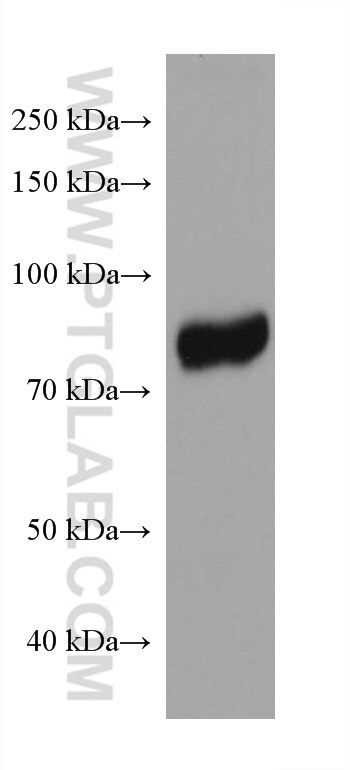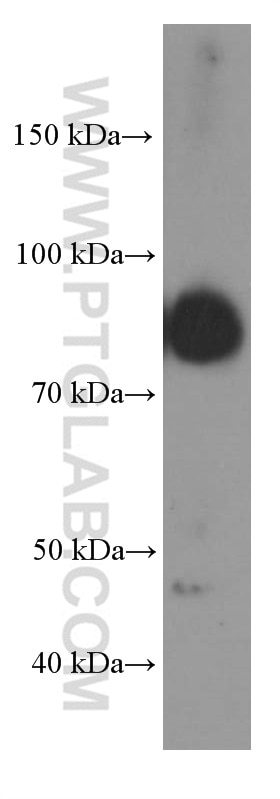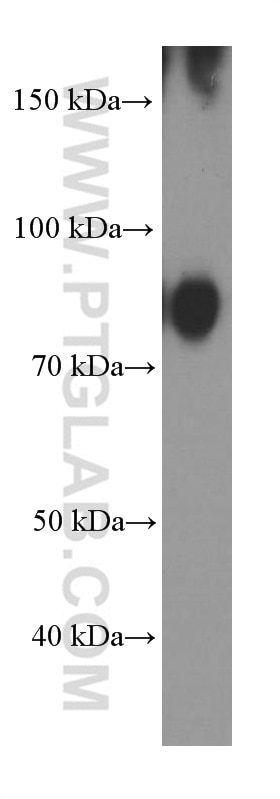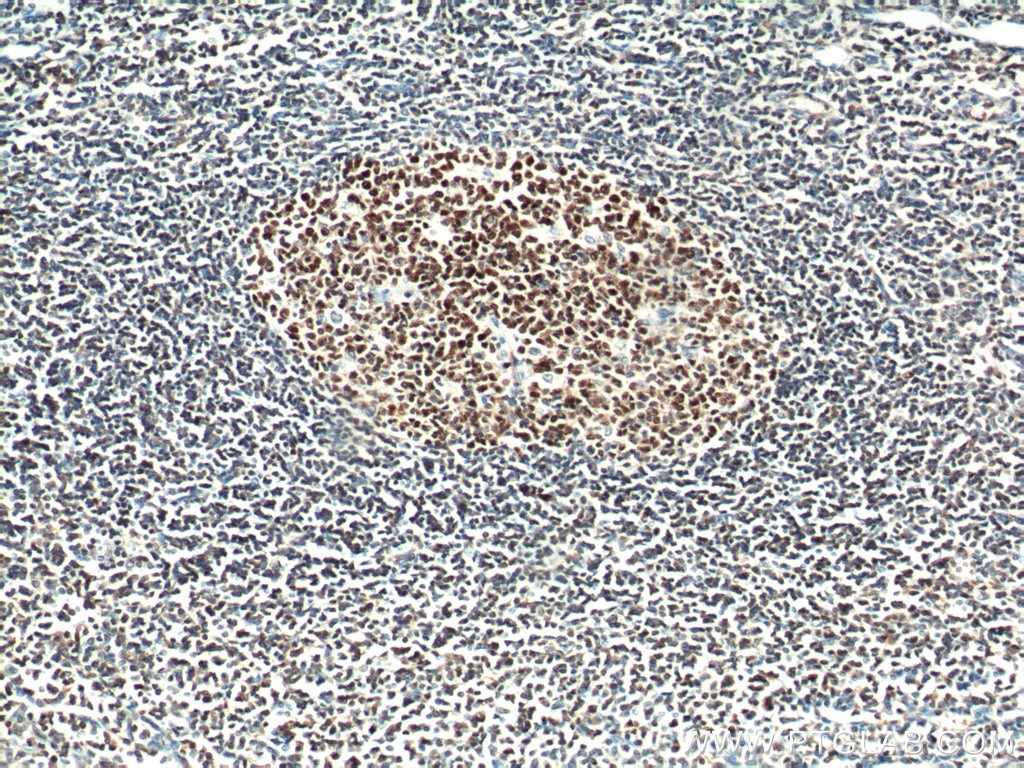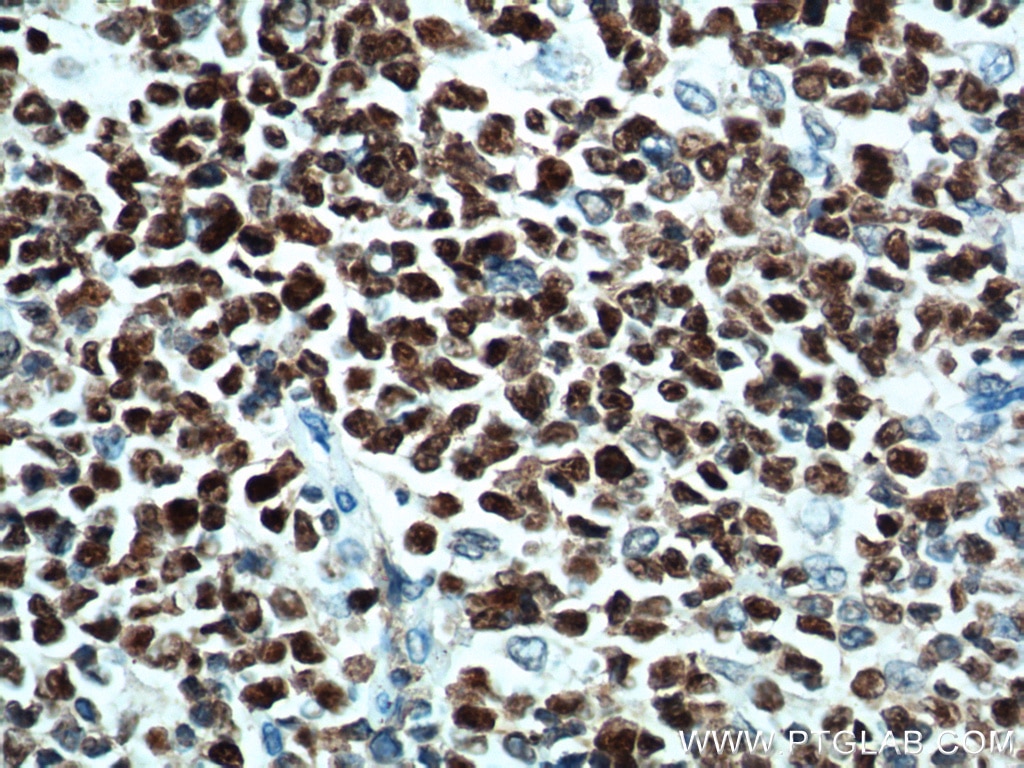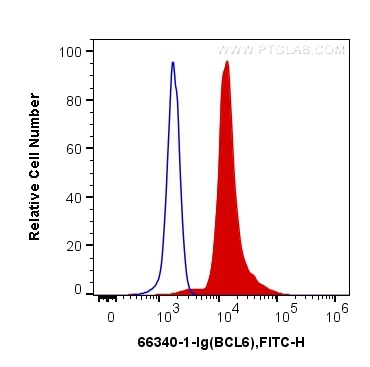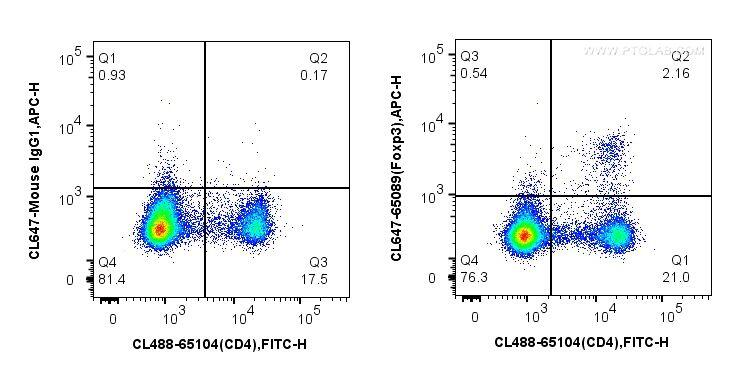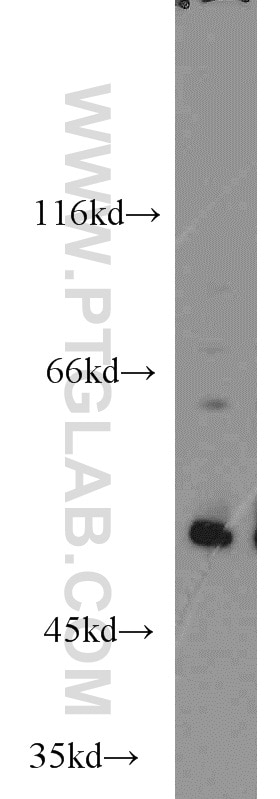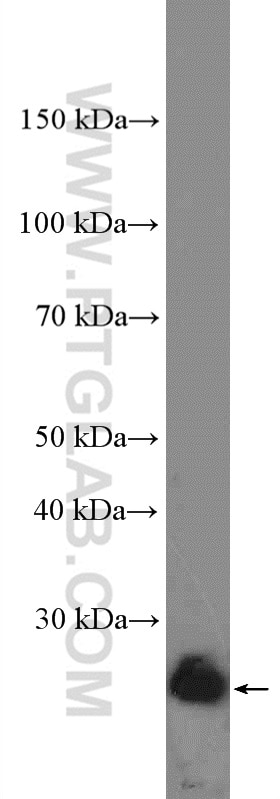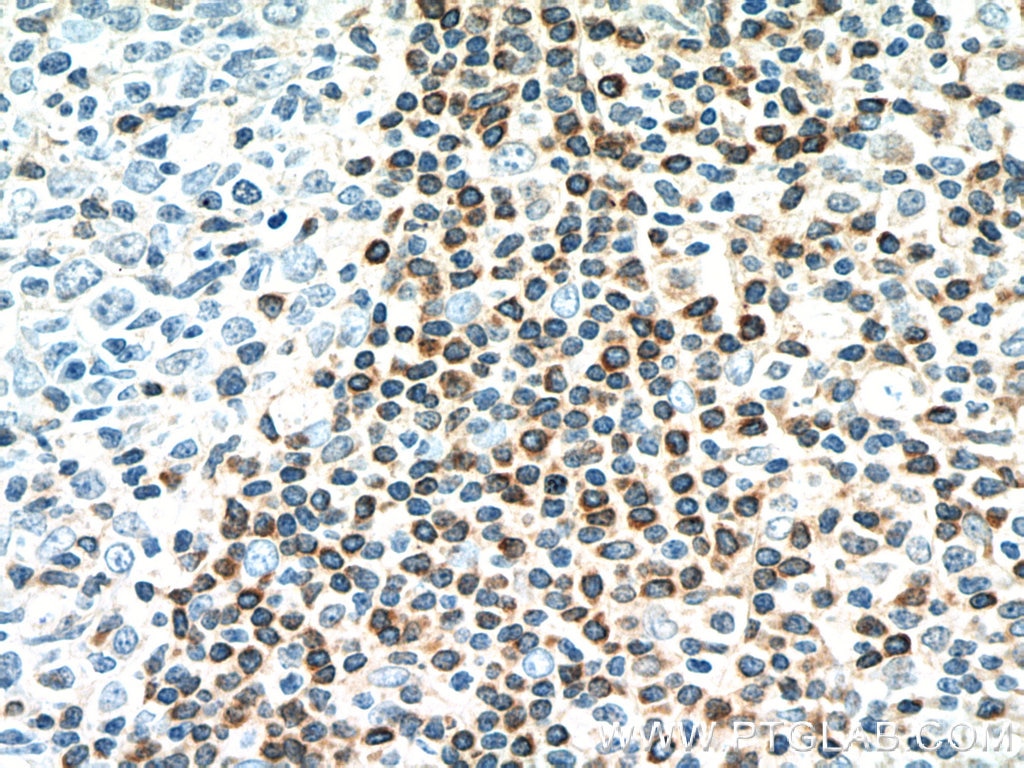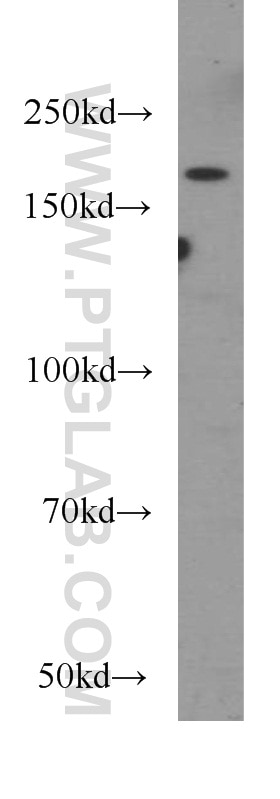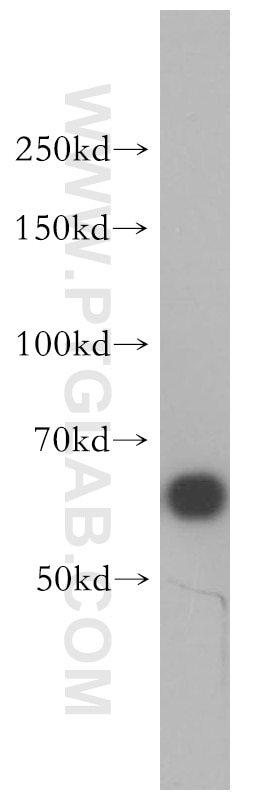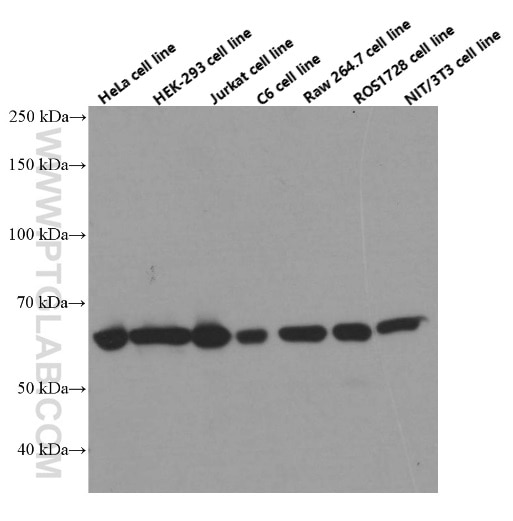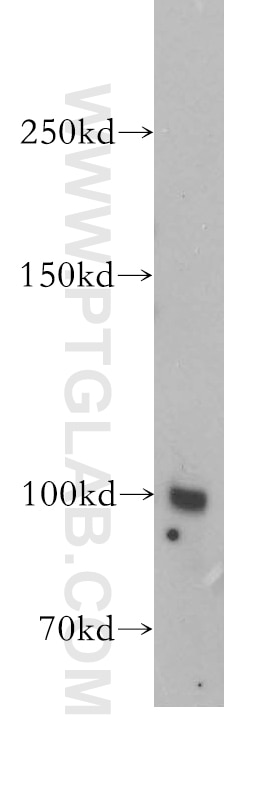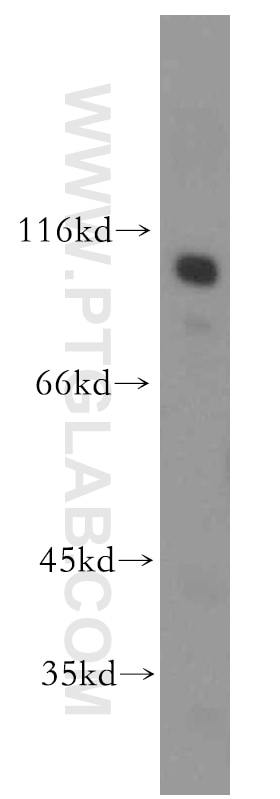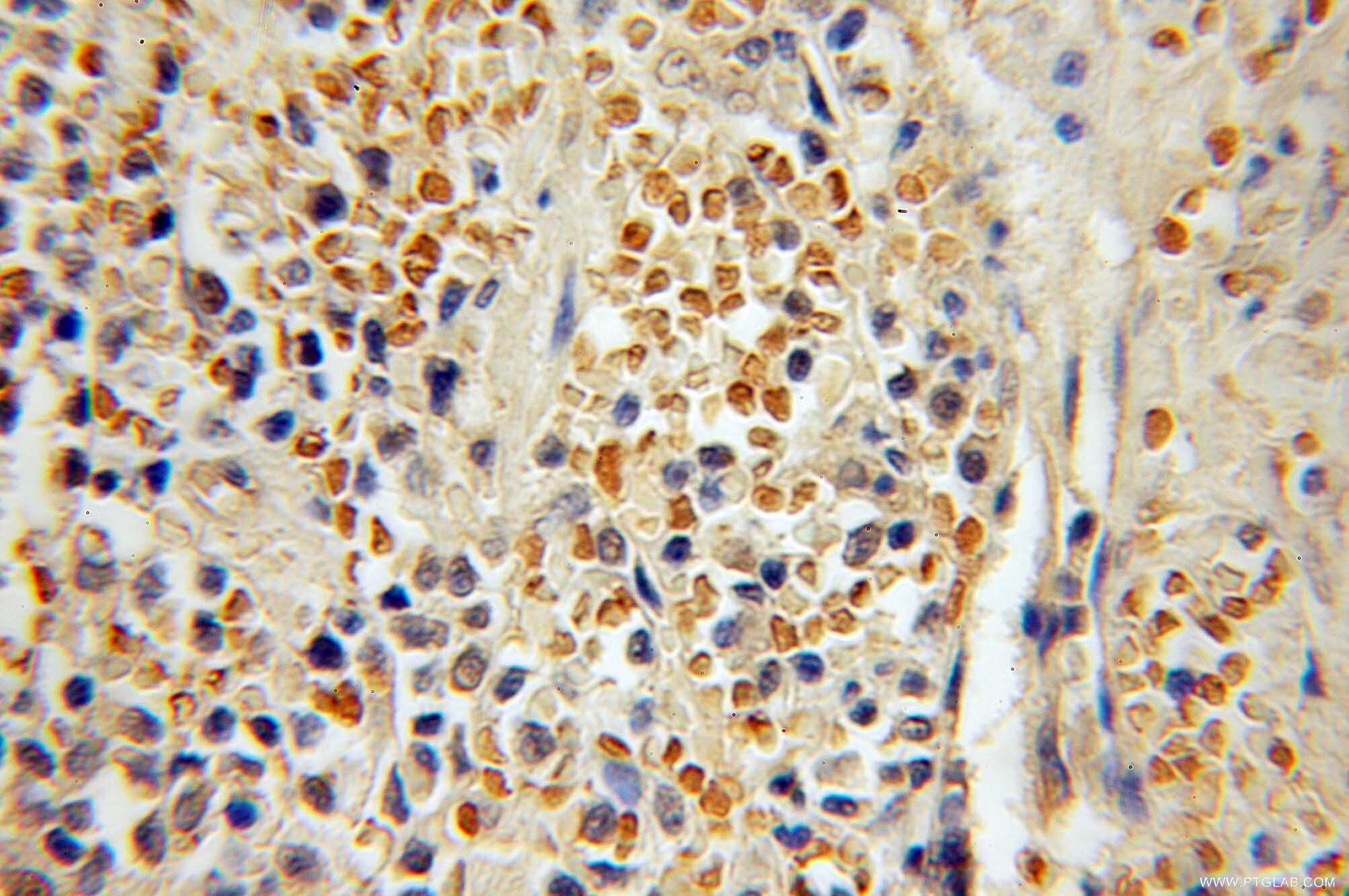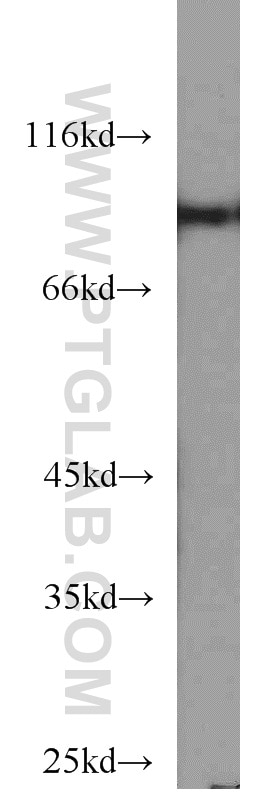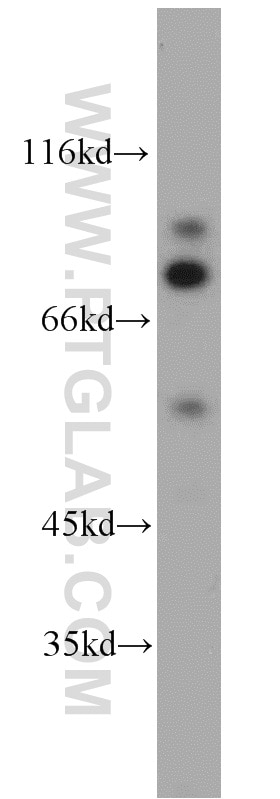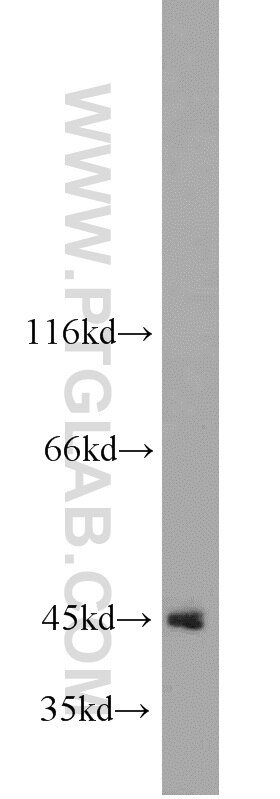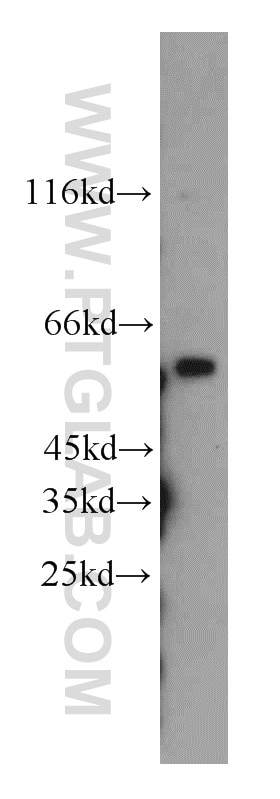Anticorps Monoclonal anti-BCL6
BCL6 Monoclonal Antibody for FC, IHC, WB, ELISA
Hôte / Isotype
Mouse / IgG1
Réactivité testée
Humain et plus (1)
Applications
WB, IHC, IF, FC, ELISA
Conjugaison
Non conjugué
CloneNo.
1E6B1
N° de cat : 66340-1-Ig
Synonymes
Galerie de données de validation
Applications testées
| Résultats positifs en WB | cellules Daudi, cellules Raji, cellules Ramos |
| Résultats positifs en IHC | tissu d'amygdalite humain, il est suggéré de démasquer l'antigène avec un tampon de TE buffer pH 9.0; (*) À défaut, 'le démasquage de l'antigène peut être 'effectué avec un tampon citrate pH 6,0. |
| Résultats positifs en cytométrie | cellules Jurkat, |
Dilution recommandée
| Application | Dilution |
|---|---|
| Western Blot (WB) | WB : 1:5000-1:50000 |
| Immunohistochimie (IHC) | IHC : 1:1000-1:2000 |
| Flow Cytometry (FC) | FC : 0.20 ug per 10^6 cells in a 100 µl suspension |
| It is recommended that this reagent should be titrated in each testing system to obtain optimal results. | |
| Sample-dependent, check data in validation data gallery | |
Applications publiées
| IHC | See 5 publications below |
| IF | See 2 publications below |
Informations sur le produit
66340-1-Ig cible BCL6 dans les applications de WB, IHC, IF, FC, ELISA et montre une réactivité avec des échantillons Humain
| Réactivité | Humain |
| Réactivité citée | Humain, souris |
| Hôte / Isotype | Mouse / IgG1 |
| Clonalité | Monoclonal |
| Type | Anticorps |
| Immunogène | BCL6 Protéine recombinante Ag15519 |
| Nom complet | B-cell CLL/lymphoma 6 |
| Masse moléculaire calculée | 706 aa, 79 kDa |
| Poids moléculaire observé | 85 kDa |
| Numéro d’acquisition GenBank | BC150184 |
| Symbole du gène | BCL6 |
| Identification du gène (NCBI) | 604 |
| Conjugaison | Non conjugué |
| Forme | Liquide |
| Méthode de purification | Purification par protéine A |
| Tampon de stockage | PBS avec azoture de sodium à 0,02 % et glycérol à 50 % pH 7,3 |
| Conditions de stockage | Stocker à -20°C. Stable pendant un an après l'expédition. L'aliquotage n'est pas nécessaire pour le stockage à -20oC Les 20ul contiennent 0,1% de BSA. |
Informations générales
BCL6, a zinc finger transcription factor, contains an N-terminal BTB/POZ domain and C-terminal zinc finger DNA-binding motifs and represses transcription of a wide range of target proteins and microRNAs. BCL6 protein has been reported as a master regulator of B lymphocyte development and growth, and altered BCL6 protein expression was implicated in pathogenesis of diverse human hematologic malignancies, especially in the diffuse large B cell lymphoma (DLBCL). BCL6 is required for the development of T follicular helper T cells (TFH), a helper T cell subset required for the formation of mature and productive GCs. BCL6 has also been shown to play important regulatory roles in macrophages. This antibody only recognize human species.
Protocole
| Product Specific Protocols | |
|---|---|
| WB protocol for BCL6 antibody 66340-1-Ig | Download protocol |
| IHC protocol for BCL6 antibody 66340-1-Ig | Download protocol |
| Standard Protocols | |
|---|---|
| Click here to view our Standard Protocols |
Publications
| Species | Application | Title |
|---|---|---|
Nat Commun B cells sustain inflammation and predict response to immune checkpoint blockade in human melanoma. | ||
Clin Transl Med Single-cell transcriptome sequencing of B-cell heterogeneity and tertiary lymphoid structure predicts breast cancer prognosis and neoadjuvant therapy efficacy | ||
Front Immunol A Standardized Analysis of Tertiary Lymphoid Structures in Human Melanoma: Disease Progression- and Tumor Site-Associated Changes With Germinal Center Alteration. | ||
iScience Tertiary lymphoid structure and decreased CD8+ T cell infiltration in minimally invasive adenocarcinoma. | ||
Cell Death Dis B-cell lymphoma 6 alleviates nonalcoholic fatty liver disease in mice through suppression of fatty acid transporter CD36. | ||
Front Oncol Clinical Impact of the Histopathological Index and Neuroimaging Features Status in Primary Central Nervous System Diffuse Large B-Cell Lymphoma: A Single-Center Retrospective Analysis of 51 Cases. |
